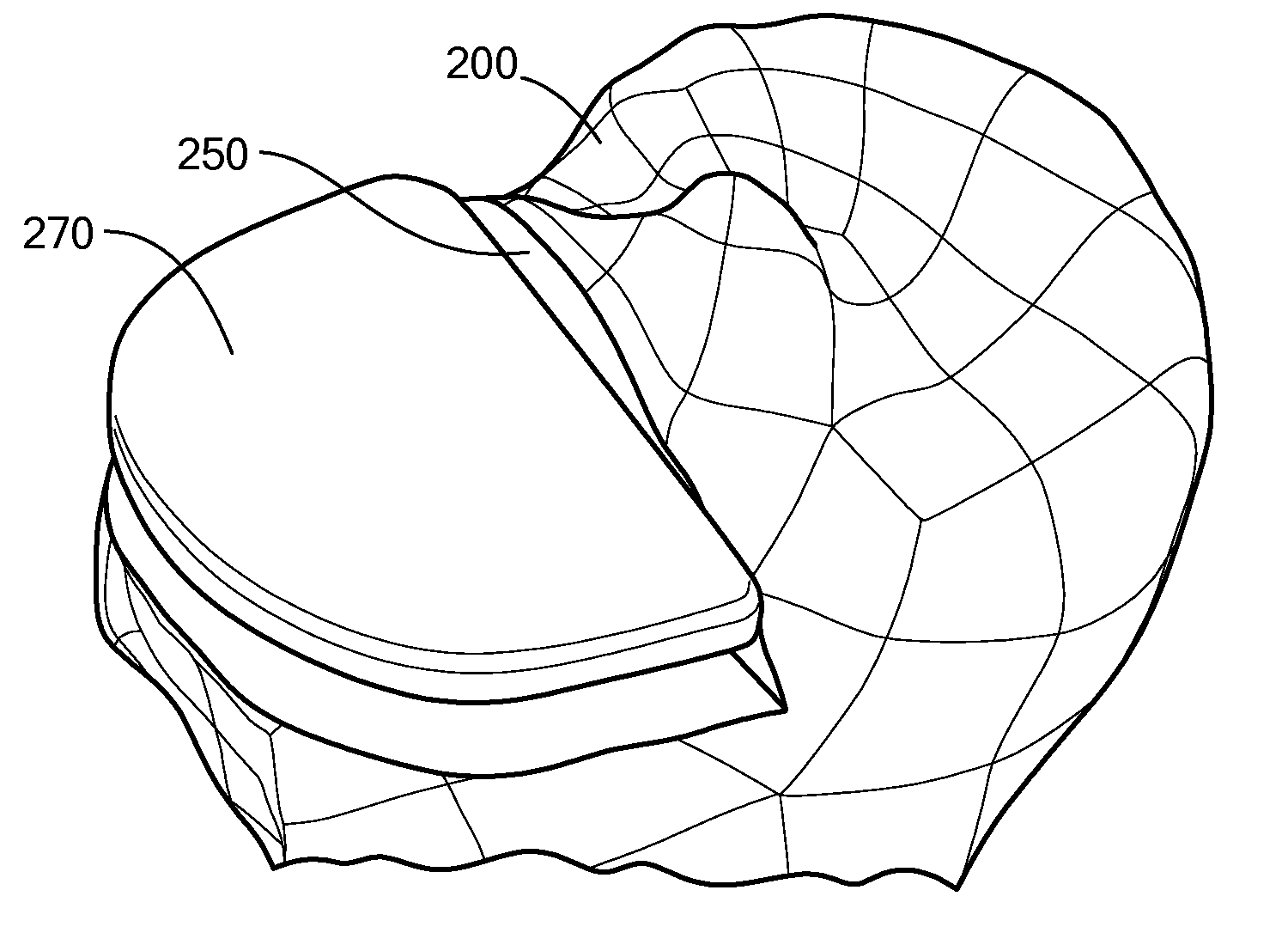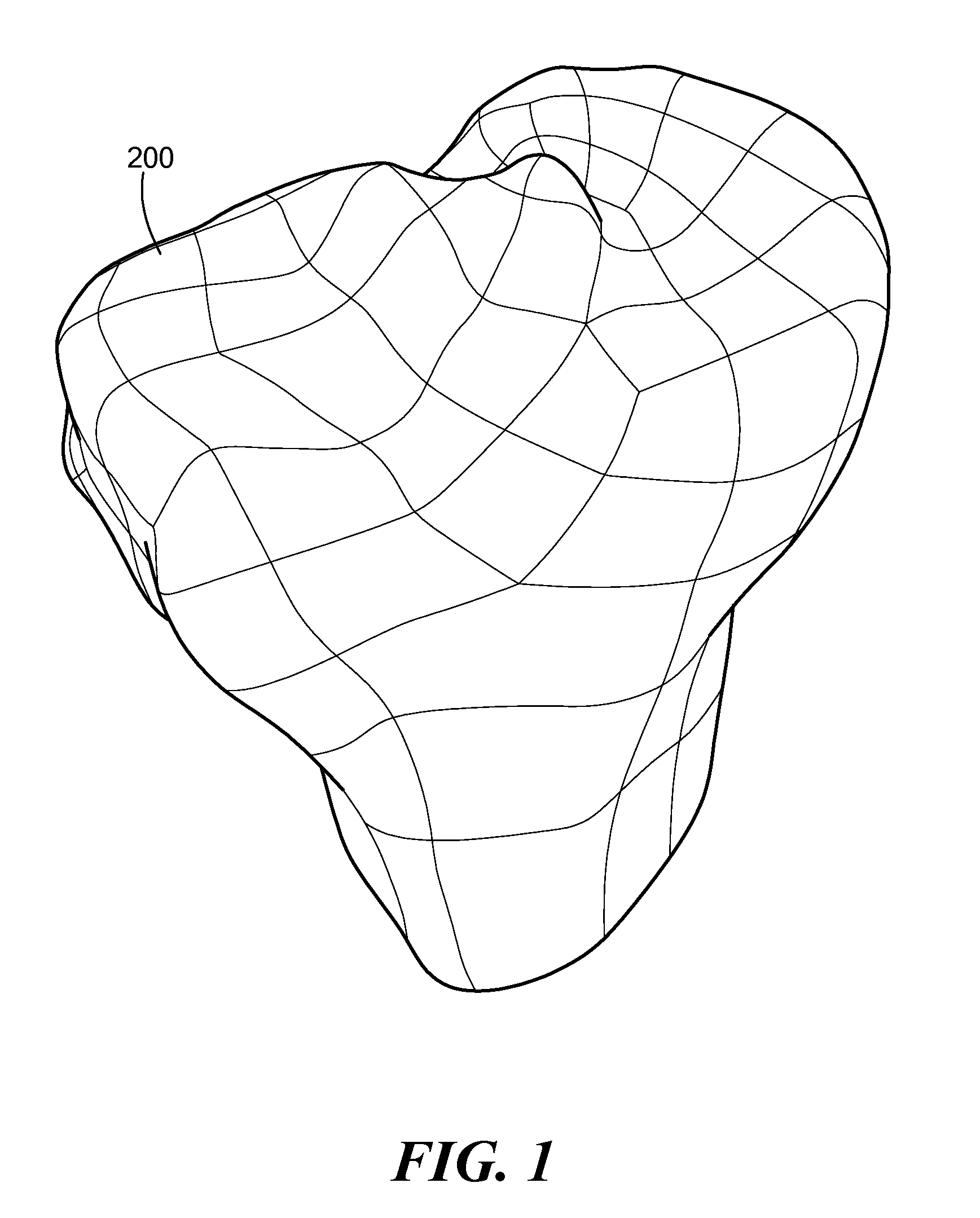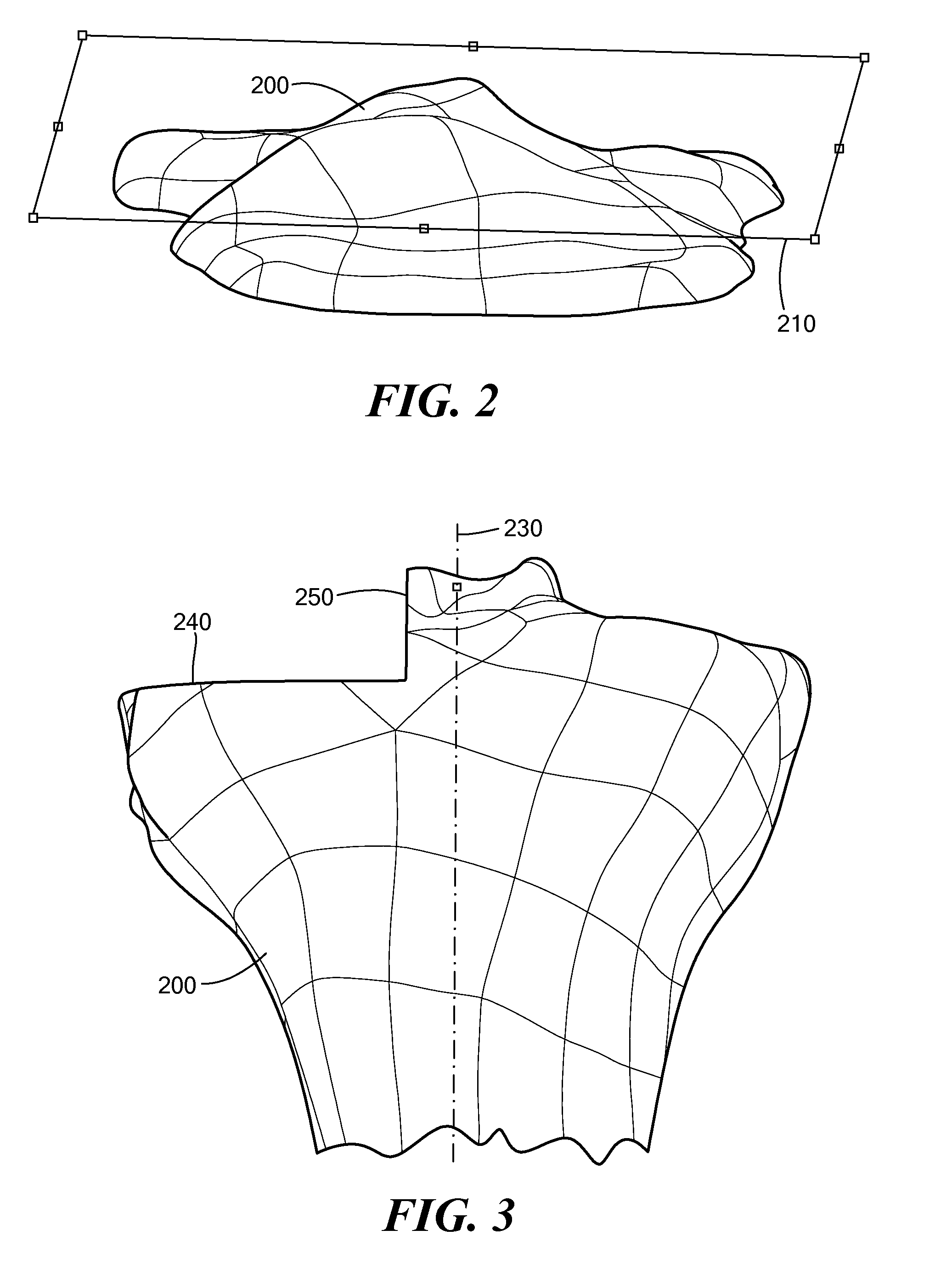Automated Systems for Manufacturing Patient-Specific Orthopedic Implants and Instrumentation
- Summary
- Abstract
- Description
- Claims
- Application Information
AI Technical Summary
Benefits of technology
Problems solved by technology
Method used
Image
Examples
Embodiment Construction
[0063]Various embodiments of the invention can be adapted and applied to implants and other devices associated with any anatomical joint including, without limitation, a spine, spinal articulations, an intervertebral disk, a facet joint, a shoulder joint, an elbow, a wrist, a hand, a finger joint, a hip, a knee, an ankle, a foot and toes. Furthermore, various embodiments can be adapted and applied to implants, instrumentation used during surgical or other procedures, and methods of using various patient-specific implants, instrumentation and other devices.
[0064]One embodiment is a nearly-fully automated system to design a patient-specific implant that requires minimal input from a designer or other operator and that is capable of designing an implant in a small fraction of the time it takes for a designer to design such an implant using computer aided design (CAD) tools.
Automated Design of a Patient-Specific Unicompartmental Femoral Implant
[0065]Referring to FIGS. 1-13 below, an exe...
PUM
 Login to View More
Login to View More Abstract
Description
Claims
Application Information
 Login to View More
Login to View More - R&D
- Intellectual Property
- Life Sciences
- Materials
- Tech Scout
- Unparalleled Data Quality
- Higher Quality Content
- 60% Fewer Hallucinations
Browse by: Latest US Patents, China's latest patents, Technical Efficacy Thesaurus, Application Domain, Technology Topic, Popular Technical Reports.
© 2025 PatSnap. All rights reserved.Legal|Privacy policy|Modern Slavery Act Transparency Statement|Sitemap|About US| Contact US: help@patsnap.com



